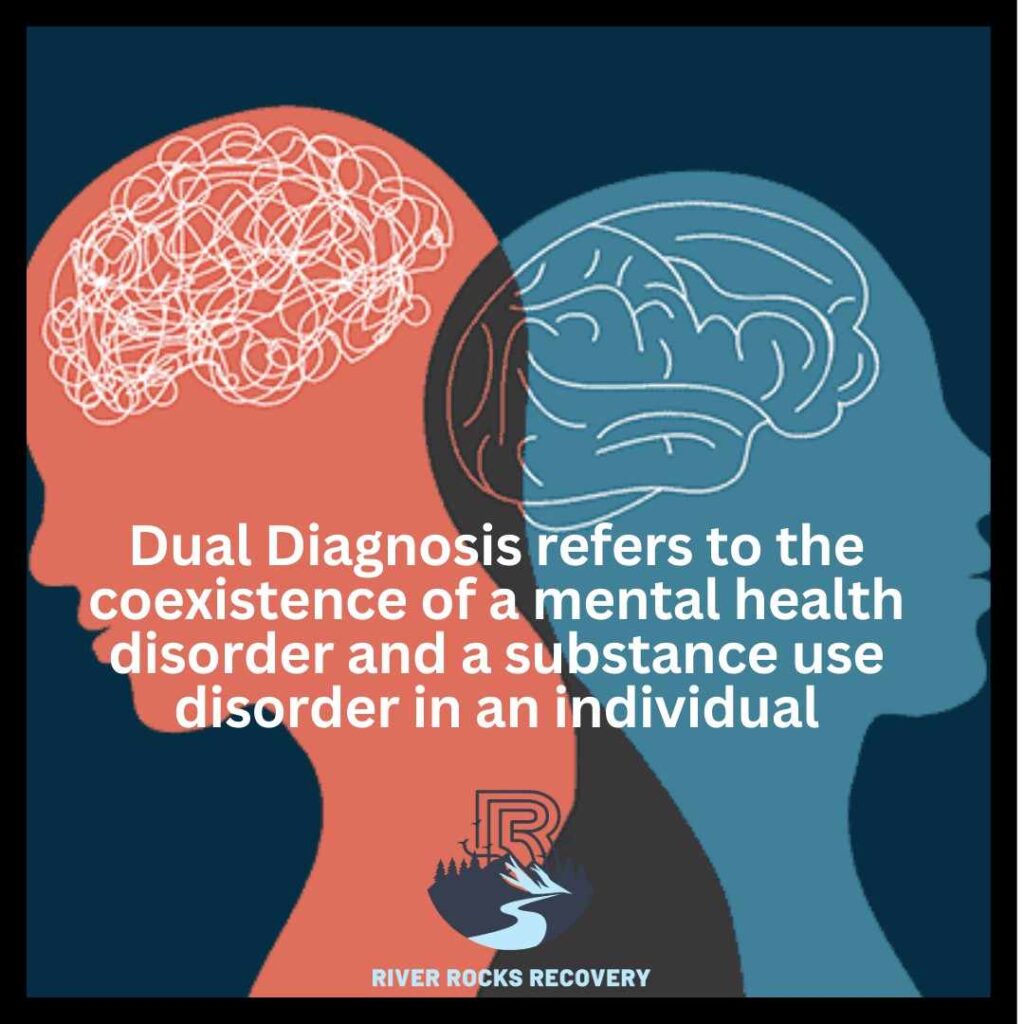The high-pressure environment of the executive world can create a perfect storm for the development of dual diagnosis – the co-occurrence of a mental health condition and a substance use disorder. The relentless pursuit of success, coupled with the isolation inherent in leadership roles, can contribute to a decline in mental health. As a coping mechanism, some executives may turn to substances to alleviate stress, leading to a vicious cycle of dependency and deteriorating well-being.
The intricate interplay between mental health and addiction in executives is often characterized by a complex interplay of factors. High-achieving individuals may be particularly susceptible to the pressures of their roles, leading to feelings of inadequacy, burnout, and a sense of isolation. These emotional challenges, if left unaddressed, can create a fertile ground for substance abuse as a means of coping.
Conversely, substance abuse can exacerbate underlying mental health conditions, leading to a downward spiral of impaired judgment, decreased productivity, and damaged relationships. This vicious cycle highlights the urgent need for comprehensive and specialized treatment to address both the mental health and addiction components of dual diagnosis.
Understanding Dual Diagnosis
Dual diagnosis refers to the co-occurrence of a mental health disorder and a substance use disorder. This complex interplay between the mind and body creates unique challenges for individuals, particularly those in high-pressure executive roles.
The relationship between mental health and substance abuse is often cyclical. Mental health conditions can increase the risk of substance use as a coping mechanism, while substance abuse can exacerbate underlying mental health issues. This vicious cycle can lead to a decline in overall well-being and negatively impact personal and professional life.
It’s essential to recognize that dual diagnosis is a treatable condition. By addressing both the mental health and addiction components simultaneously, individuals can achieve lasting recovery and regain control of their lives.

The Executive Lifestyle and Its Impact
The fast-paced, high-pressure world of executive leadership can take a significant toll on mental and emotional well-being. The relentless pursuit of success, coupled with the weight of responsibility, often leads to a neglect of self-care and an increased risk of burnout.
- Isolation and Loneliness: The elevated position of executives can often lead to feelings of isolation and disconnection from peers. The pressure to maintain a strong outward image can hinder the ability to seek support or share vulnerabilities.
- Decision Fatigue: The constant barrage of critical decisions can deplete cognitive resources, leading to exhaustion, irritability, and impaired judgment.
- Perfectionism and Unrealistic Expectations: The drive for success can create unrealistic standards, leading to feelings of inadequacy and self-doubt.
- Work-Life Imbalance: The demands of executive roles often encroach on personal time, leading to neglect of relationships, hobbies, and self-care.
- Stigma: The fear of judgment and career repercussions can prevent executives from seeking help for mental health concerns or substance abuse issues.
Seeking Help: Overcoming Stigma and Barriers
The stigma surrounding mental health and substance abuse among executives can create significant barriers to seeking help. The fear of judgment, career repercussions, and maintaining a strong public image often prevents individuals from accessing the support they need.
However, it’s essential to recognize that seeking help is a sign of strength, not weakness. Addressing mental health and addiction issues proactively can lead to improved well-being, increased resilience, and enhanced leadership capabilities.
Overcoming Stigma:
- Educate Yourself: Learn about mental health and addiction to dispel misconceptions and reduce stigma.
- Build a Supportive Network: Surround yourself with trusted individuals who can offer understanding and support.
- Seek Confidential Help: Choose a mental health professional who prioritizes confidentiality and discretion.
Finding the Right Treatment Program:
- Research Treatment Options: Explore different treatment approaches, such as executive coaching, therapy, and medication management.
- Consider a Confidential Facility: Opt for addiction treatment center that prioritizes privacy and discretion.
- Balance Treatment with Work: Find a mental health treatment program that accommodates your professional responsibilities.
The Role of Executive Coaching in Recovery
Executive coaching can be an invaluable component of the recovery process for individuals in leadership positions. By providing personalized support and guidance, executive coaches can help clients navigate the challenges of balancing professional demands with personal well-being.
- Goal Setting and Accountability: Executive coaches assist in setting clear recovery goals and developing strategies to achieve them.
- Time Management and Prioritization: Coaching can help executives optimize their time and energy, reducing stress and burnout.
- Leadership Development: Building resilience, emotional intelligence, and effective communication skills are essential for long-term recovery.
- Confidentiality and Support: Executive coaches offer a confidential space to discuss challenges and explore solutions.
- Career Transition: Coaching can support executives in making career adjustments if necessary, while maintaining focus on recovery.
The Importance of a Strong Support System
A robust support system is essential for navigating the challenges of dual diagnosis and maintaining long-term recovery. Surrounding yourself with understanding and supportive individuals can provide invaluable encouragement, accountability, and companionship.
- Family and Friends: Cultivate strong relationships with loved ones who offer unconditional support and understanding.
- Support Groups: Participating in support groups connects you with others who share similar experiences, fostering a sense of belonging and camaraderie.
- Recovery Coaches: Consider working with a recovery coach to provide additional guidance and accountability.
- Mentorship: Seeking mentorship from individuals who have successfully overcome dual diagnosis can offer valuable insights and inspiration.
- Professional Support: Maintaining a strong relationship with your treatment team is crucial for ongoing care and support.
The Role of Technology in Supporting Recovery
Technology has revolutionized the way we connect, access information, and manage our lives. For individuals in recovery, technology offers valuable tools and resources to support their journey.
- Online Support Communities: Virtual platforms and online support groups provide opportunities to connect with others in recovery, sharing experiences and offering encouragement.
- Mental Health Apps: Numerous apps offer tools for stress management, mindfulness, meditation, and tracking mood and progress.
- Telehealth Services: Remote therapy sessions and consultations provide flexibility and accessibility for individuals who may face geographical or scheduling challenges.
- Wearable Technology: Fitness trackers and smartwatches can monitor physical activity, sleep patterns, and stress levels, promoting overall well-being.
- Educational Resources: Online resources offer information about addiction, mental health, and recovery strategies.
While technology offers numerous benefits, it’s essential to use it mindfully and balance screen time with face-to-face interactions. By leveraging technology effectively, individuals in recovery can enhance their support system and improve their overall well-being.
The Importance of Maintaining Balance
Achieving balance in all areas of life is crucial for long-term recovery and overall well-being. By integrating various aspects of life, individuals in recovery can build a strong foundation for sustained success.
- Work-Life Balance: Prioritizing both professional and personal fulfillment is essential for preventing burnout and maintaining a healthy lifestyle.
- Physical Health: Engaging in regular exercise, maintaining a balanced diet, and getting sufficient sleep contribute to overall well-being and stress management.
- Mental and Emotional Well-being: Continuing to prioritize mental health through therapy, meditation, or other self-care practices is essential for long-term recovery.
- Social Connections: Building and maintaining strong relationships with friends and family provides support and a sense of belonging.
- Spiritual Growth: Exploring personal values and spirituality can offer a deeper sense of purpose and meaning.
Relapse Prevention: Building a Strong Foundation
Relapse is a common challenge in recovery, but it’s important to view it as a setback rather than a failure. By developing a comprehensive relapse prevention plan, individuals can increase their chances of long-term sobriety and overall well-being.
- Identifying Triggers: Recognizing situations, emotions, or environments that may trigger cravings or relapse is crucial for developing effective coping mechanisms.
- Building a Strong Support System: Surrounding yourself with understanding and supportive individuals can provide encouragement, accountability, and companionship.
- Developing Healthy Coping Mechanisms: Learning alternative ways to manage stress, anxiety, and boredom can help prevent relapse.
- Continuing Education: Staying informed about addiction and recovery can empower individuals to make informed decisions.
- Self-Care: Prioritizing physical and mental health through exercise, nutrition, and relaxation techniques is essential for overall well-being.
- Relapse Prevention Planning: Creating a detailed relapse prevention plan can help individuals anticipate challenges and develop strategies for overcoming them.
Celebrating Successes: A Cornerstone of Recovery
Celebrating milestones and achievements is an essential component of the recovery journey. Recognizing and rewarding progress reinforces motivation, builds self-esteem, and fosters a positive outlook.
- Setting Achievable Goals: Break down larger recovery goals into smaller, manageable steps to celebrate incremental successes.
- Positive Affirmations: Practice self-affirmation to recognize your strengths and accomplishments.
- Reward Yourself: Treat yourself to something special to celebrate milestones, but avoid using substances as rewards.
- Share Your Successes: Talk about your achievements with supportive friends, family, or a recovery community.
- Gratitude Practice: Focus on the positive changes in your life and express gratitude for your progress.
Conclusion: A Brighter Future in Recovery
Overcoming the challenges of dual diagnosis requires dedication, perseverance, and a comprehensive approach. By addressing both mental health and addiction, individuals can achieve lasting recovery and reclaim their lives.
River Rocks Recovery is committed to supporting executives on their path to wellness. Our specialized addiction treatment programs are designed to address the unique needs of high-achieving individuals, providing a confidential and supportive environment for healing and growth.
Through evidence-based treatment, executive coaching, and a strong emphasis on well-being, we empower individuals to rebuild their lives and achieve their full potential. Our programs incorporate a holistic approach, focusing on physical, emotional, and mental health to create a solid foundation for sustained recovery.
By combining professional care with a personalized treatment plan, we help executives regain control, enhance leadership skills, and build a fulfilling life in recovery. Contact us at: (888) 905-6281 or fill the contact form to learn more about our programs and how we can support you or a loved one on the road to recovery.
FAQs on Dual Diagnosis for Executives
How common is dual diagnosis among executives?
While specific statistics are limited, the high-stress nature of executive roles increases the risk of developing both mental health and substance abuse issues.
What are some common mental health conditions that co-occur with substance abuse among executives?
Depression, anxiety, and bipolar disorder are common mental health conditions associated with dual diagnosis in executives.
What can I do to prevent relapse after treatment?
Developing a strong support system, practicing self-care, and continuing therapy can help prevent relapse.
How can I improve my work-life balance as an executive in recovery?
Setting boundaries, delegating tasks, and prioritizing self-care are essential for maintaining a healthy work-life balance.
What types of addiction does River Rocks Recovery treat?
River Rocks Recovery offers treatment for a variety of addictions, including alcohol, opioids, prescription drugs, and other substances.
Does River Rocks Recovery offer treatment for co-occurring disorders?
Yes, we understand the complexities of mental health and addiction and offer integrated treatment programs.
What levels of care does River Rocks Recovery offer?
We provide a continuum of care, including detoxification, residential treatment, partial hospitalization, and outpatient programs.
Does River Rocks Recovery offer aftercare programs?
Yes, we offer aftercare services to support long-term recovery and prevent relapse.




























